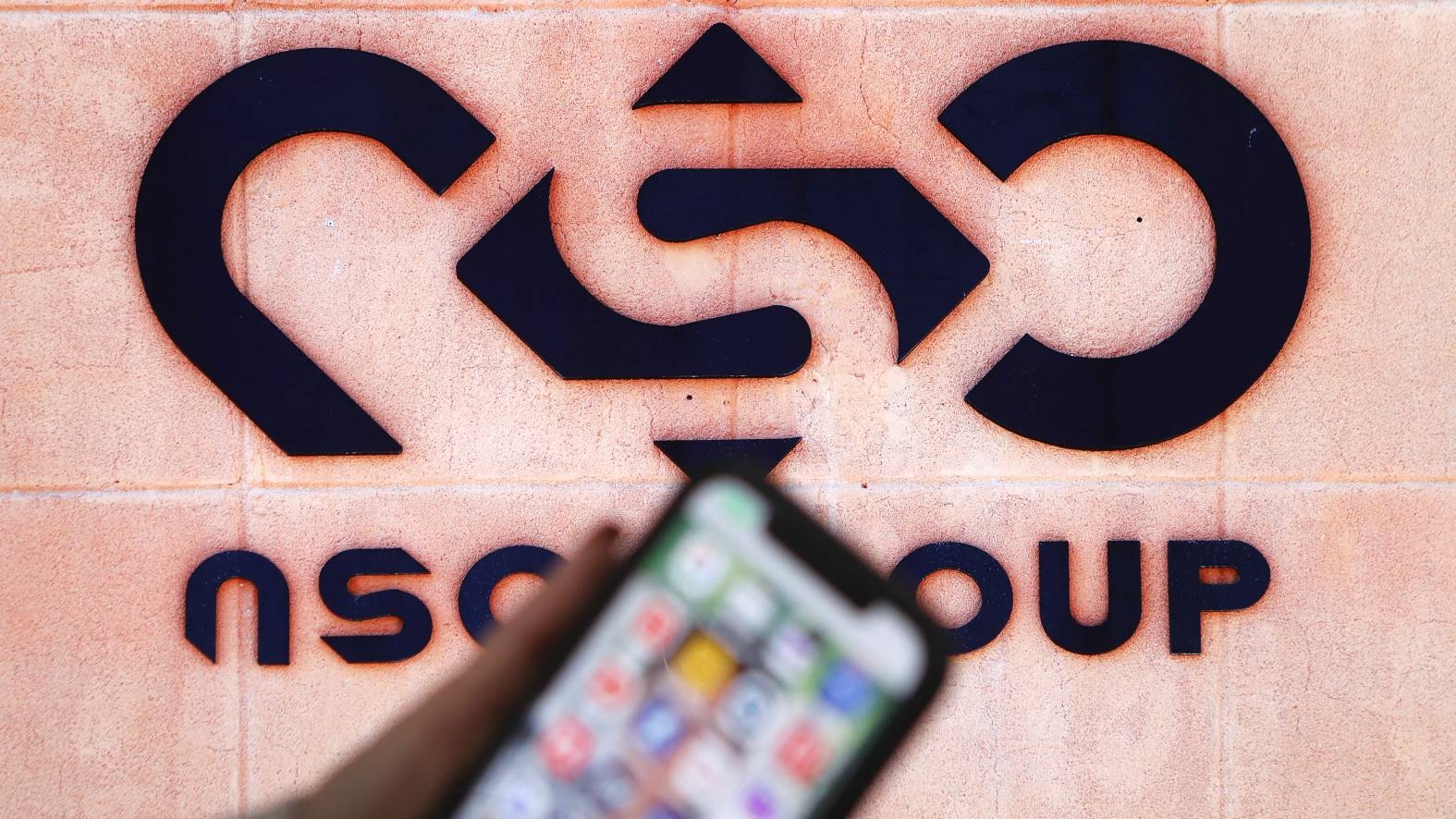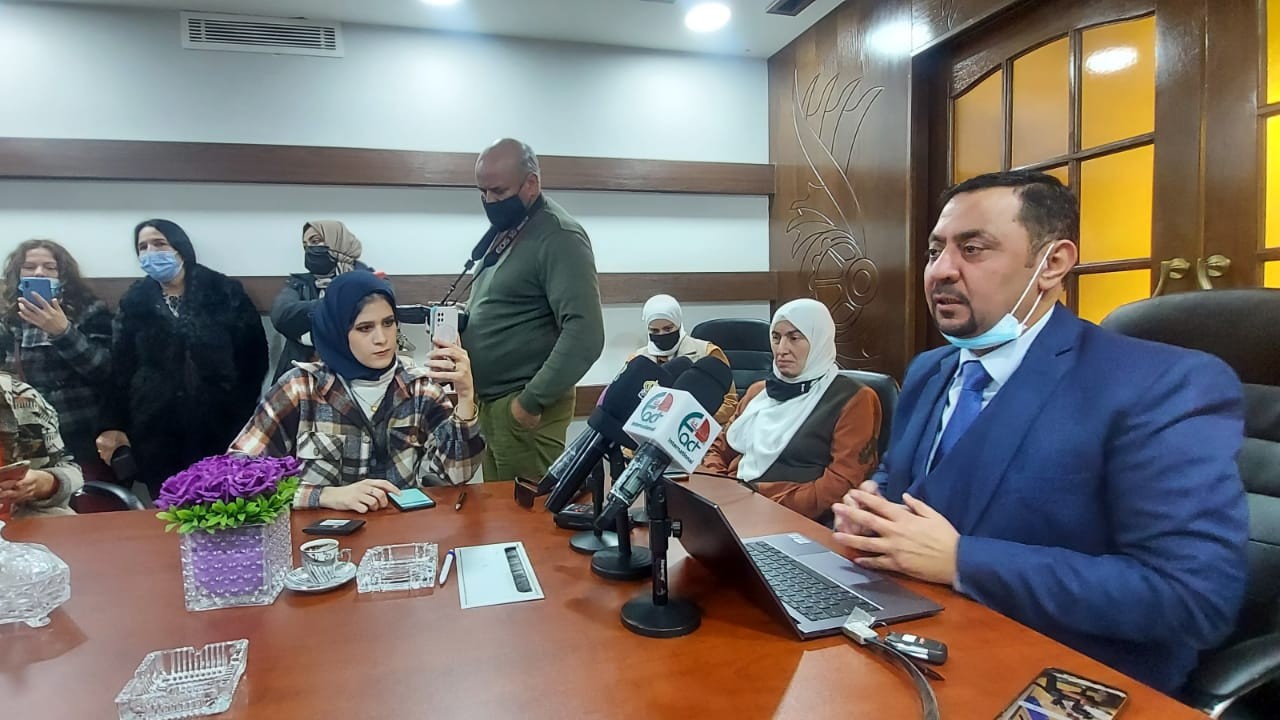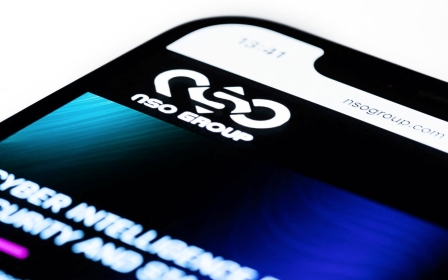Pegasus: Jordanian officials and journalists demand probe into hacking of their phones

Dozens of Jordanian politicians and activists targeted by the Israeli surveillance spyware, Pegasus, have called on their government to investigate how their phones were hacked.
Speaking at a press conference on Thursday, officials and activists said up to 200 Jordanians had been targeted by Pegasus - software which has been found to hack smartphones and harvest data including photos, emails and voice messages, and turn devices into a tracking and monitoring devices.
Hussein Jiddi, a security information engineer, said the personal phone of Dima Tahboub, a member of the royal commission for the modernisation of political systems, was among those targeted by Pegasus.
"After nearly 200 Jordanians received a notice from Apple that their phones were hacked, we checked the cell phones of a number of political and media personalities and discovered that the phones of Murad Addaileh, the secretary-general of the Islamic Action Front; journalist Husam Gharibeh; Badi Rafayyeh, a member of the Muslim Brotherhood; and Noor Abu Ghosh, a social media activist, were also affected by the spyware," he said.
NSO has been involved in numerous scandals in recent years and has faced a deluge of criticism over reports that its software has been used to target political dissidents, activists and journalists around the world.
New MEE newsletter: Jerusalem Dispatch
Sign up to get the latest insights and analysis on Israel-Palestine, alongside Turkey Unpacked and other MEE newsletters
The company says its Pegasus software helps fight crime, but investigators have found it on the phones of journalists and dissidents.
Speaking to Middle East Eye, Tahboub, a leader at the Islamic Action Front, said she suspected Israel was behind the hack.
"I can't separate the attacks on my political positions from this Zionist programming. There is nothing that I am hiding. I support totally the right of the Palestinian people to resist until Palestine is liberated."
Tahboub, who was active in a commission set up by King Abdullah last June with the aim of reforming electoral and party laws, said it was crucial the Jordanian government protected politicians, activists and others from being targeted in the future.
"The government must not be quiet and must open an investigation that aims at finding out what information was taken and whether or not the royal court's network was in fact infiltrated despite the fact that there is a peace agreement with the enemy," she said.
According to an investigation by the digital rights non-profit group Access Now and the human rights group Front Line Defenders (FLD), the phone of Hala Ahed, a prominent lawyer and human rights activist, was also hacked last March using Pegasus.
Mohammad al-Masqati, a MENA digital protection coordinator at FLD, told MEE that his organisation was investigating whether Jordan was a client of NSO and how the hackings could have taken place.
"We have already published what we discovered on the phone of Hala Ahed, and we will make public any more information we find after we complete the research on the data from their cell devices."
In April, Axios reported that the Jordanian government was in talks to buy new software from NSO, but it was unclear whether these talks ever resulted in a purchase being made.
Murad Adaileh, the general secretary of the Islamic Action Front, told MEE that more needed to be done by Jordanian authorities after tests carried out on his phone showed it had been hacked on three occasions.
"I accuse the Zionists and some of the despotic Arab regimes of being behind these infiltrations," he said.
"There is news that some Arab countries did buy the Pegasus system and some unconfirmed reports that Jordan also bought it, but I can't confirm that. Regardless, there is clear evidence that the Zionists and the despotic Arab regimes have a joint interest."
Deema Alam Farraj, a well-known social media activist, said it was crucial Jordanian authorities conducted a thorough investigation.
"I received a warning from Apple that there was an attempt to infiltrate my phone, but I paid no attention to this message. But I became much more concerned when a Reuters reporter called me with information that my and other Jordanians' phones were hacked," she told MEE.
"I didn't make an official complaint, but I called on the government to make a public statement about what happened to the phones of many other Jordanians."
MEE contacted the Jordanian authorities for comment, but a government spokesman refused to speak on any of the matters raised at Thursday's press conference.
Middle East Eye delivers independent and unrivalled coverage and analysis of the Middle East, North Africa and beyond. To learn more about republishing this content and the associated fees, please fill out this form. More about MEE can be found here.






